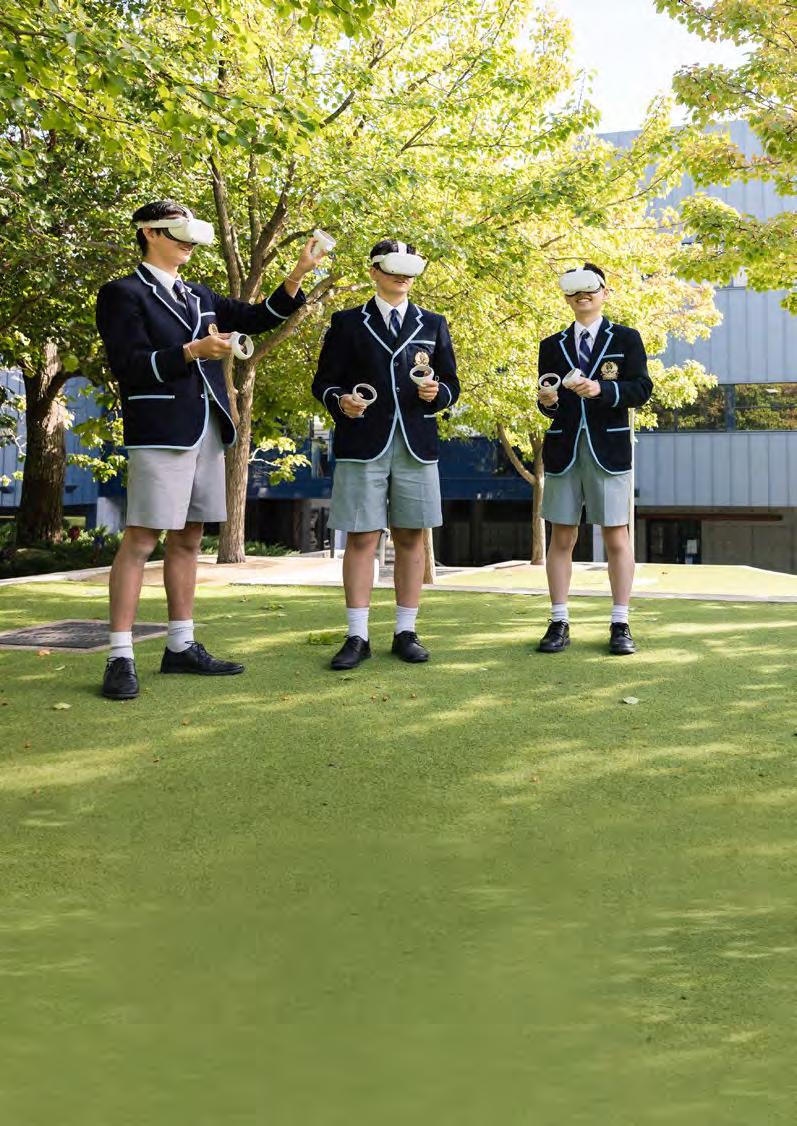
4 minute read
From the Headmaster’s Desk
Time is a slippery thing. It can slow to a crawl when we are bored, and speed by when we are lost in a task. Conceptually we understand that there is a past and a future, but we are trapped in a constant ‘now’. Our bodies are effectively oneway time machines, moving constantly into the future one moment at a time. My Year 7 History students find this quite a mind-expanding idea. We live in a constantly evolving present, moving towards, but never quite getting to a future, and remembering, but never able to return to a past. We exist only in this moment.
The present, however, is complicated. We are overloaded with sensory input; there is too much information and too many competing versions of reality. History gives us a guide to our present, it helps us to understand how we got here, and it provides a guide to how others have dealt in the past with the issues we now face. The past is the only place we can look to help us understand our present. Sometimes it can give us a road map, complete with hints and examples, of how to manage difficult issues; at other times it can be a guide for what not to do.

Our School has a long history, and it has changed enormously from the small community school established in St John’s Sunday School building by Arthur bertram Taylor in 1886. Tens of thousands of students have been educated here in those 136 years, by hundreds of teachers. Some of those teachers, such as Ian Mason and John Allen, taught boys for over 50 of those years. We know that the School has had its ups and downs, and there are some things we regret happened at all, but the vision of the School has always been one of faith in the power and value of education, and the belief that a trained and rational mind is the best tool we have to deal with the vicissitudes of life. Looking back over that history gives us the chance to learn, to admire, to criticise and to applaud, to celebrate and regret. We try to resist the desire to eulogise or glorify, while at the same time recognising that, on the whole, the School has been a powerful force for good. I am reminded of that fact at every past student event I attend, where I have the privilege to learn what has become of our graduates over the decades. I am constantly impressed by their quiet selfpossession and the many and varied ways that they have sought to create value in their world.
This edition of Spectemur is backward-looking in its focus and it gives us an opportunity to reflect on how the past lives on in our present, and how what has gone before helps shape us as we are today. We are currently in the very early stages of developing a new Master Plan for our School. We are speaking with a range of people about how education will change in the decades ahead, and how best to prepare for those changes. As we creep slowly into our future we acknowledge the lessons of our past, we seek to learn from them, and be ready for times to come.
Dr Paul Hicks
Headmaster









